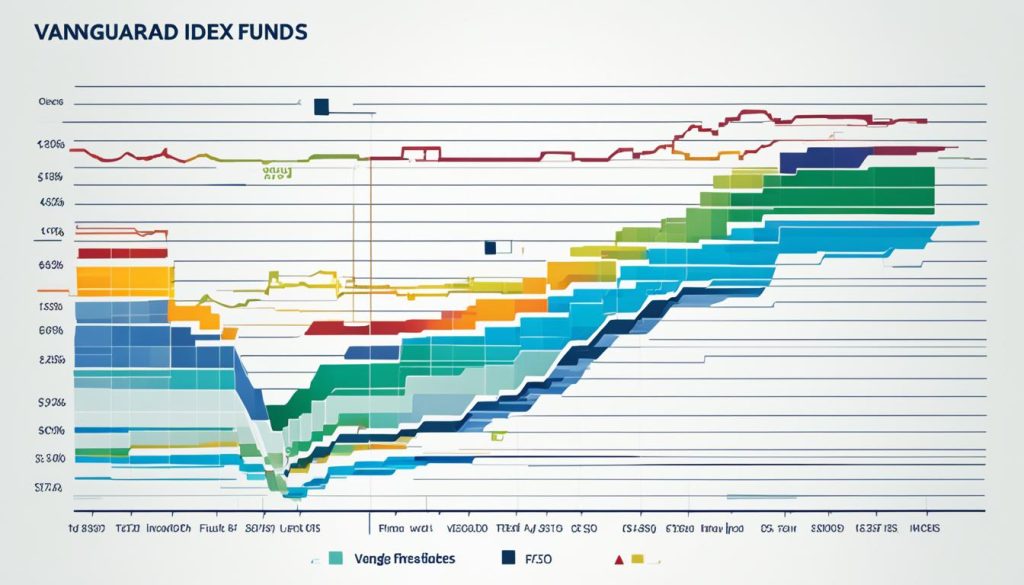Welcome to our comprehensive guide on investing in index funds. Whether you’re a seasoned investor or just starting out in the world of finance, index funds offer a simple yet effective way to grow your wealth. In this guide, we will explore the ins and outs of index funds, providing you with the knowledge and tools necessary to make informed investment decisions. So, sit back, grab a cuppa, and let’s delve into the exciting world of index fund investing.
How to Invest in Index Funds?
Choosing the Right Index
When it comes to investing in index funds, one of the crucial decisions you’ll need to make is selecting the right index to track. With hundreds of indexes available, it’s important to choose one that aligns with your investment goals and preferences. Here are some popular index funds you can consider:
S&P 500 Index
The S&P 500 index is one of the most renowned and widely tracked indexes. It includes 500 of the top companies in the U.S. stock market, representing a broad range of industries and sectors. Investing in an S&P 500 index fund allows you to gain exposure to the overall performance of the U.S. economy.
Dow Jones Industrial Average
The Dow Jones Industrial Average (DJIA) is another prominent index that consists of 30 large, publicly traded companies. It’s often viewed as an indicator of the overall health of the stock market. Investing in a fund that tracks the DJIA can give you exposure to these blue-chip companies.
Nasdaq Composite
The Nasdaq Composite index is focused primarily on technology and growth-oriented companies. It includes both domestic and international securities listed on the Nasdaq Stock Market. Investing in a Nasdaq Composite index fund can provide exposure to the dynamic and rapidly evolving tech industry.
MSCI EAFE
The MSCI EAFE index represents developed markets outside of the U.S. and Canada. It includes companies from Europe, Australasia, and the Far East. Investing in an MSCI EAFE index fund can help diversify your portfolio globally.
MSCI Emerging Markets
The MSCI Emerging Markets index comprises companies from economies that are considered to be in the early stages of development. Investing in an MSCI Emerging Markets index fund offers exposure to the growth potential of these economies.
Bloomberg Barclays Global Aggregate Bond
The Bloomberg Barclays Global Aggregate Bond index represents a broad range of global investment-grade fixed-income securities. Investing in a fund that tracks this index can provide diversification and stability through bond investments.
Other Popular Indexes
In addition to the abovementioned indexes, there are many others you can consider based on your investment objectives. Some examples include the Russell 2000 index, FTSE 100 index, and the Wilshire 5000 Total Market index.
Ultimately, the choice of index depends on your risk tolerance, investment strategy, and the areas of the market you want to focus on. Take the time to research and understand each index’s composition and historical performance to make an informed decision.

| Index | Description |
|---|---|
| S&P 500 | Includes 500 top companies in the U.S. stock market |
| Dow Jones Industrial Average | Consists of 30 large, publicly traded companies |
| Nasdaq Composite | Focuses on technology and growth-oriented companies |
| MSCI EAFE | Represents developed markets outside of the U.S. and Canada |
| MSCI Emerging Markets | Comprises companies from emerging economies |
| Bloomberg Barclays Global Aggregate Bond | Represents a broad range of global investment-grade fixed-income securities |
Choosing the Right Fund
Once you’ve chosen an index, it’s important to select the right index fund that tracks the chosen index. Comparing different index funds can help you make an informed decision based on several factors. Consider the following:
1. Tracking Accuracy
One key aspect to consider is how closely the index fund tracks the underlying index. Look for funds with a high tracking accuracy, as this ensures that the fund’s performance closely matches that of the index it is designed to replicate. This information is typically available in the fund’s prospectus or on the provider’s website.
2. Fees
Compare the costs associated with investing in different index funds. Fees can significantly impact your overall investment returns, so it’s essential to choose funds with low expense ratios. Look for funds with competitive fees that align with your investment goals.
3. Limitations and Restrictions
Some index funds may have limitations or restrictions that you need to be aware of. For example, certain funds may impose minimum investment requirements or have specific redemption policies. Be sure to review these details to ensure they align with your investment preferences and financial situation.
4. Fund Providers
The reputation and track record of the index fund provider are also crucial considerations. Look for well-established and reputable fund providers that have a history of delivering consistent results. Vanguard, as an example, is a well-known provider of index funds with a variety of options.

Comparing these factors can help you choose the index fund that best suits your investment needs and goals. Below is a table summarizing some popular index fund providers and their offerings:
| Index Fund Provider | Popular Index Funds |
|---|---|
| Vanguard | Vanguard 500 Index Fund, Vanguard Total Stock Market Index Fund, Vanguard Total International Stock Index Fund, Vanguard Total Bond Market Index Fund |
| BlackRock | iShares S&P 500 Index ETF, iShares Core MSCI EAFE ETF, iShares Core MSCI Emerging Markets ETF |
| Schwab | Schwab S&P 500 Index Fund, Schwab International Index Fund, Schwab U.S. Broad Market ETF |
Remember to thoroughly research and compare index funds to make an informed decision that aligns with your investment goals, risk tolerance, and preferences.
Buying Index Fund Shares
To invest in index funds and become a part of the market, you need to purchase shares of the desired index fund. There are two main options for buying index fund shares:
- Open a brokerage account: A brokerage account allows you to trade stocks and ETFs, including index funds. With a brokerage account, you have the flexibility to buy and sell shares as needed. You can choose from a wide range of brokerage firms that offer index funds.
- Open an account with a mutual fund company: Alternatively, you can directly open an account with a mutual fund company that offers index funds. This option provides a straightforward and direct way to invest in index funds without the need for a brokerage account. Vanguard, for example, is a well-known mutual fund company that offers a variety of index funds.
When deciding the best way to buy index fund shares, consider factors such as costs and features. Compare the fees associated with the brokerage account or the mutual fund company and analyze the available features to make an informed decision.
Additionally, some brokers offer fractional shares, which allow you to invest in index funds with smaller amounts of money. This can be particularly beneficial for beginner investors who may not have a large sum of money to invest upfront.
Investing in index funds provides diversification by owning a range of assets within the fund. This means you’re not reliant on the performance of individual stocks or companies, reducing the risk associated with holding a concentrated portfolio.

“Diversification is an important factor when investing in index funds as it helps spread your risk. By owning a wide variety of assets within the fund, you can reduce the impact of any single company’s poor performance.” – John Davis, Financial Advisor.
| Brokerage Account | Mutual Fund Company |
|---|---|
| Allows trading of stocks, ETFs, and index funds. | Directly invests in index funds without a broker. |
| Wide range of brokerage firms to choose from. | Options offered by mutual fund companies, such as Vanguard. |
| May charge commissions or transaction fees. | May have lower expense ratios compared to brokerage accounts. |
| Flexibility to buy and sell shares as needed. | Straightforward way to invest without the need for a brokerage account. |
The Benefits of Investing in Index Funds
Index funds offer numerous advantages for investors looking to grow their wealth over time. By understanding the benefits of investing in index funds, you can make informed decisions about your investment strategy.
Minimal Investment Research
One of the primary benefits of index funds is that they require minimal investment research. As opposed to actively managed funds, index funds aim to match the performance of a specific market index. This means you don’t have to spend extensive time analyzing individual stocks or making complex investment decisions. Instead, you can rely on the expertise of the fund’s portfolio manager to track the index’s performance.
Managed Investment Risk
Investing in index funds provides a level of risk management. Since index funds track an entire index, they offer built-in diversification. This means that even if a few companies in the index perform poorly, the overall impact on your investment is limited. By spreading your investment across multiple companies and industries, you can reduce the risk of significant losses and potentially increase your chances of long-term returns.
Lots of Choices
Another benefit of investing in index funds is the wide range of choices available. Whether you’re interested in broad market exposure like the S&P 500 or prefer to focus on specific sectors or investment themes, you can find an index fund that suits your goals. This allows you to tailor your investment strategy to your preferences and take advantage of specific market trends or opportunities.
Low Fees
Compared to actively managed funds, index funds generally have lower fees. Since index funds aim to replicate the performance of a specific index, they require less active management and research. As a result, the fees associated with index funds are typically lower, allowing you to keep more of your investment returns.
Tax Efficiency
Index funds are also known for their tax efficiency. Since index funds typically have low portfolio turnover, meaning they buy and sell securities less frequently, there are fewer taxable events. This can result in lower capital gains distributions and potentially lower tax liabilities for investors.
Building Your Portfolio Over Time
Investing in index funds allows you to build your portfolio over time. Whether you’re just starting or have been investing for years, index funds provide a flexible and scalable investment option. You can start small and gradually increase your investment as you feel more comfortable. This long-term approach to investing allows you to benefit from the potential growth of the stock market and build wealth over time.
By understanding these benefits, you can make informed decisions about how to invest in index funds and integrate them into your overall investment strategy. Whether you’re a beginner or an experienced investor, index funds offer a compelling option for achieving your financial goals.
Considerations and Limitations
While investing in index funds offers numerous advantages, it’s essential to understand the considerations and limitations associated with this investment strategy.
No chance of beating the market: Index funds are designed to replicate the performance of the underlying index rather than outperform it. As a result, investors should not expect to beat the market returns through index fund investing.
Short-term downside risk: Index funds can be volatile in the short term, especially during market downturns. It’s important to be prepared for potential fluctuations and remain focused on long-term investment goals.
Diversification limitations: While index funds offer diversification by including multiple stocks within the fund, this can also lead to owning stocks that investors may not prefer. Additionally, by tracking a specific index, investors may miss out on opportunities from stocks outside the index.
Comparison of Index Funds and Actively Managed Funds
| Index Funds | Actively Managed Funds | |
|---|---|---|
| Investment Strategy | Passively replicates a specific market index | Actively managed by a portfolio manager |
| Fees | Generally have lower fees compared to actively managed funds | May have higher fees due to active management |
| Performance | Aims to match the performance of the underlying index | Seeks to outperform the market |
| Risk | Subject to market fluctuations and downturns | Performance influenced by the fund manager’s decisions |
| Flexibility | Investors have limited control over the fund’s composition | Fund manager can make active investment decisions |
When considering investing in index funds, it’s crucial to weigh the advantages against these limitations and determine if they align with your investment objectives and risk tolerance.

Recommended Index Funds for Beginners
If you’re a beginner looking to invest in index funds, here are some recommended options to consider:
Vanguard S&P 500 ETF
The Vanguard S&P 500 ETF is an excellent choice for beginners. It tracks the performance of the S&P 500 index, which includes 500 top companies in the U.S. stock market. This fund provides broad exposure to the U.S. market and is known for its low fees and long-term performance.
Vanguard Total Stock Market
The Vanguard Total Stock Market index fund offers investors exposure to the entire U.S. stock market. It tracks the performance of the CRSP US Total Market Index, which includes large, mid, small, and micro-cap stocks. This fund provides diversification across various market sectors and has a proven track record.
Vanguard Total International Stock Market
For international exposure, the Vanguard Total International Stock Market index fund is an ideal choice. It tracks the performance of the FTSE Global All Cap ex US Index, which includes stocks from developed and emerging markets outside of the United States. This fund helps to diversify your portfolio globally.
Vanguard Total Bond
The Vanguard Total Bond index fund is a great option for investors looking to add fixed-income securities to their portfolio. It tracks the performance of the Bloomberg Barclays U.S. Aggregate Bond Index, providing exposure to a broad range of U.S. investment-grade bonds. This fund helps to balance the risk in your overall investment strategy.
By considering these recommended index funds, you can start your investment journey with reliable options that offer diversification, low fees, and long-term growth potential.
| Index Fund | Description |
|---|---|
| Vanguard S&P 500 ETF | Tracks the performance of the S&P 500 index |
| Vanguard Total Stock Market | Offers exposure to the entire U.S. stock market |
| Vanguard Total International Stock Market | Provides international diversification outside of the United States |
| Vanguard Total Bond | Adds fixed-income securities to your portfolio |
Conclusion
Investing in index funds is an excellent strategy for beginners looking to build wealth. These funds offer a range of advantages that make them an attractive choice for investors. First and foremost, index funds provide diversification by tracking a market index, spreading the investment across multiple stocks or bonds. This helps to reduce the risk of significant losses associated with individual companies or sectors. Plus, index funds have low fees, making them cost-effective compared to actively managed funds. The ability to track the performance of the market also ensures that investors can benefit from the overall growth and stability of the economy.
Considerations must be taken into account when investing in index funds. Although they offer many advantages, index funds are designed to achieve the performance of the underlying index and do not attempt to beat the market. This means that investors should not expect extraordinary returns or outperforming the overall market. Additionally, index funds can be subject to short-term downside risk and may experience market downturns. It’s essential to have a long-term mindset and stay focused on your investment objectives.
By carefully considering these advantages and limitations, beginners can confidently start investing in index funds. Follow the step-by-step guide provided in this article to make informed choices when selecting index funds. With the potential for diversification, low fees, and the ability to track market performance, index funds offer an accessible and effective way to build your financial portfolio over time. Start investing in index funds today and take a step towards achieving your financial goals.

